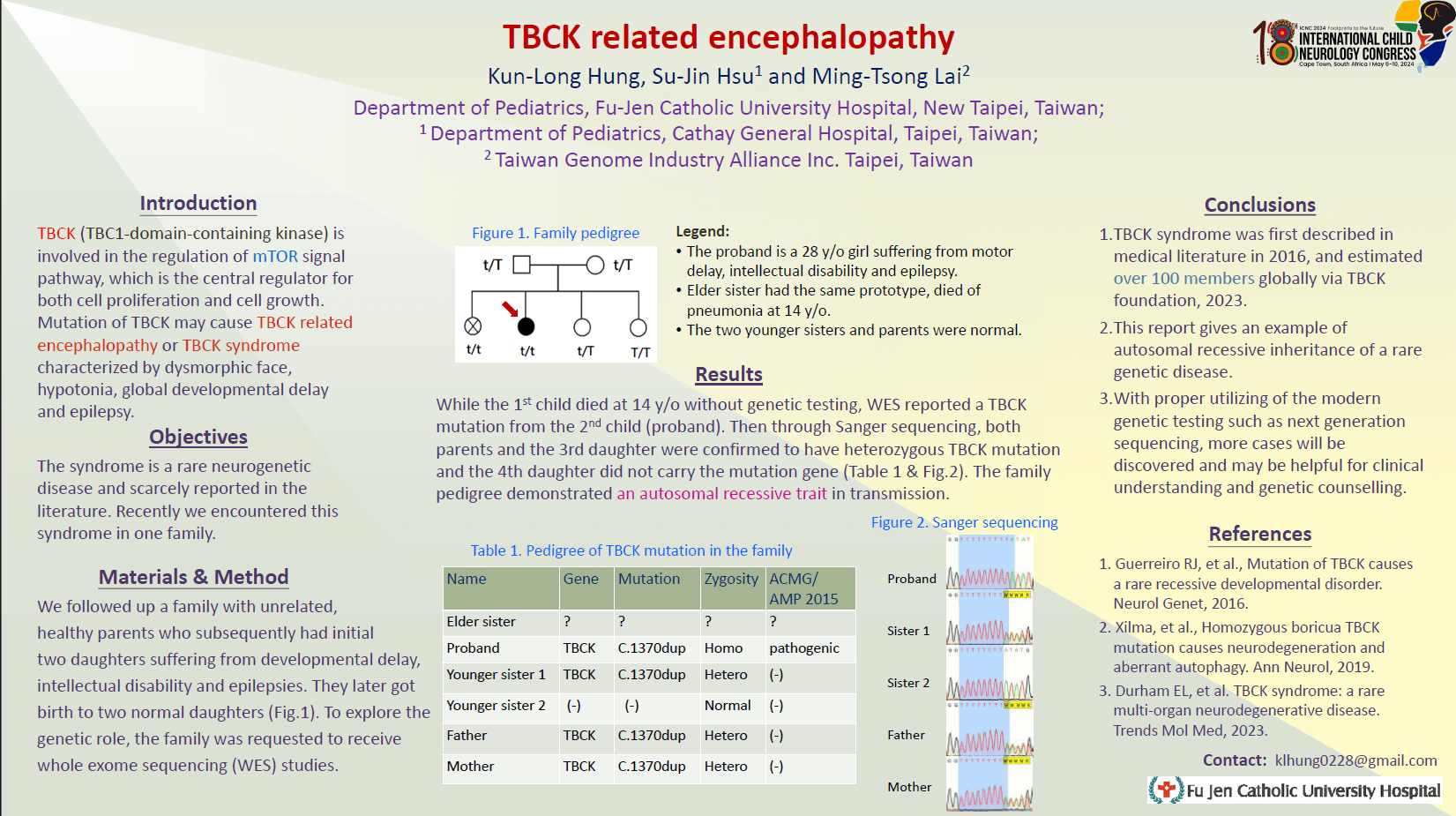TBCK Related Encephalopathy
Introduction: TBCK is involved in the regulation of mTOR signal pathway, which is the central regulator for both cell proliferation and cell growth. Mutation of TBCK may cause TBCK related encephalopathy or TBCK syndrome characterized by dysmorphic face, hypotonia, global developmental delay and epilepsy. Objectives: The syndrome is a rare neurogenetic disease and scarcely reported in the literature. Recently we encountered this syndrome in one family. Methods: We followed up a family with unrelated, healthy parents who subsequently had initial two daughters suffering from developmental delay, intellectual disability and various severity of epileptic seizures. They later got birth to two more normal daughters. The family was requested to receive whole exome sequencing (WES) studies. Results: While the 1st child died at 14 y/o without testing, WES reported a TBCK mutation from the 2nd proband. Then through Sanger sequencing, both parents and the 3rd daughter were confirmed to have heterozygous TBCK mutation and the 4th daughter did not carry the mutation gene. Conclusions: TBCK syndrome was first described in medical literature in 2016, and estimated about 100 members globally via TBCK foundation, 2022. This report gives an example of autosomal recessive inheritance of a rare genetic disease. With proper utilizing of the modern genetic testing such as next generation sequencing, more cases will be discovered and helpful for clinical understanding and genetic counselling.
Kun-Long Hung
Fu-Jen Catholic University Hospital
Taiwan
Su-Jin Hsu
Cathay General Hospital
Taiwan
Ming-Tsong Lai
Taiwan Genome Industry Alliance Inc.
Taiwan
